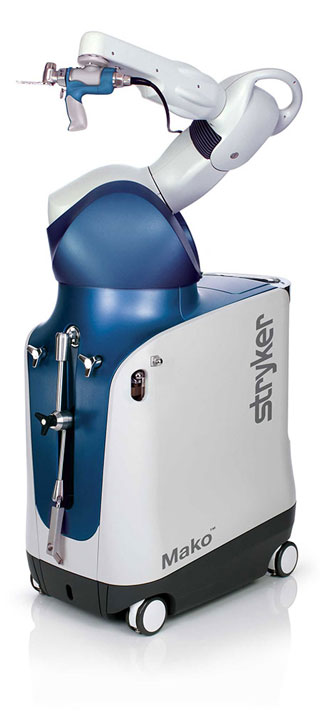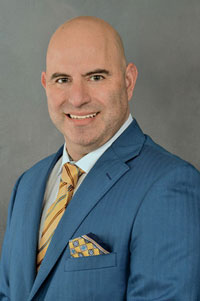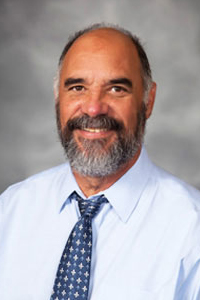MAKO® Robotic-Arm
Assisted Surgery
MEET MAKO®
#DontDelayCare

Iberia Medical Center is now offering 3 SURGICAL OPTIONS for adults with HIP and KNEE joint disease resulting from degenerative, rheumatoid and post-traumatic arthritis.
- HIP REPLACEMENT
- TOTAL KNEE REPLACEMENT
- PARTIAL KNEE REPLACEMENT
MAKO® Robotic-Arm Assisted Surgery is a revolutionary treatment option for adults with joint disease that provide your orthopedic surgeon with a detailed 3D model of your unique anatomy enabling custom and precise alignment and placement of implants. The diseased or damaged joint is replaced with an artificial joint called an implant. Made of metal alloys and high-grade plastics (to better match the function of bone and cartilage, respectively), the implant is designed to move much like a healthy human joint.
FIND A MAKO® PHYSICIAN
Physicians currently certified to perform the MAKO® hip replacement, total knee replacement and partial knee replacement at Iberia Medical Center:
MAKO® KNEE REPLACEMENT
MAKO® HIP REPLACEMENT
MAKO® Knee Replacement Patient Testimonials
Ms. Jeanette Bourque
Ms. Peggy Daspit
Errol Broussard
MAKO® Robotic-Arm Assisted Surgery is transforming the way joint replacement surgeries are being performed.
Surgery is performed by a MAKO® trained orthopedic surgeon. The robotic-arm does not perform the surgery. Your orthopedic surgeon will guide the MAKO® robotic-arm to remove diseased bone and cartilage and insert the implant.
BENEFITS OF MAKO®
- Accurate placement and precision
- Smaller incision
- Less post-operative pain
- Shorter hospital stay
- Quicker recovery

HOW MAKO® TECHNOLOGY WORKS
- Before surgery
A CT scan of your hip or knee joint that is used to generate a 3D virtual model of your unique anatomy. This virtual model is loaded into the MAKO® System software and is used to create your personalized pre-operative plan. - In the operating room
In the operating room, your surgeon will use the MAKO® System to assist in performing your surgery based on your personalized pre-operative plan. When the surgeon prepares the bone for the implant, the surgeon guides the robotic-arm within the predefined area and the MAKO® System helps the surgeon stay within the planned boundaries, thus protecting soft tissue and ligaments around the diseased or damaged joint. - After surgery
After surgery, your surgeon, nurses and physical therapists will set goals with you to get you back on the move. They will closely monitor your condition and progress.
More Info on MAKO®
For more information about the revolutionary MAKO® Hip, Total Knee or Partial Knee Replacement Surgery at Iberia Medical Center:
Email IMC MAKO®Frequently Asked Questions:
-
What is MAKO® Robotic-Arm Assisted Joint Replacement Surgery?
MAKO® Robotic-Arm Assisted Joint Replacement is an innovative treatment option for adults living with early to midstage osteoarthritis
MAKO® is being used for Hip Replacement, Total Knee Replacement and Partial Knee Replacemen. It is a treatment option for adults living with mid- to late-stage osteoarthritis of the knee or hip. MAKO® provides you with a personalized surgical plan based on your unique anatomy.
The MAKO® technology provides your surgeon with a patient-specific 3-D model to pre-plan your joint replacement. During surgery, they guide the MAKO® robotic-arm based on your patient-specific plan. This allows the surgeon to remove the diseased bone, preserve healthy bone and soft tissue, and position the implant based on your anatomy.
-
Where is MAKO® available in Iberia Parish?
MAKO® Hip and Knee replacement surgery is now available at Iberia Medical Center’s North Campus at 600 N. Lewis Street, New Iberia.
-
What are the benefits of MAKO®?
The MAKO® Robotic-Arm Assisted Joint Replacement procedure is designed to relieve the pain caused by joint degeneration and potentially offers the following benefits:
- Improved surgical outcomes
- Less implant wear and loosening
- Joint resurfacing
- Bone sparing
- Smaller incision
- Less scarring
- Reduced blood loss
- Minimal hospitalization
- Rapid recovery
-
How does it work?
First, a CT scan of your knee joint is taken. This CT scan is uploaded into the MAKO® System software, where a 3-D model of your knee is created. This 3-D model is used to pre-plan and assist your surgeon in performing your total knee replacement.
-
In the operating room
During surgery, your surgeon follows your personalized surgical plan while preparing the bone for the Triathlon Total Knee implant. With over a decade of clinical history, triathlon knee replacements are different than traditional knee replacements because they are designed to work with the body to promote natural-like circular motion.
The surgeon then guides the robotic-arm to remove diseased bone and cartilage within the pre-defined area. The MAKO® System helps them stay within the planned boundaries that were defined when the personalized pre-operative plan was created. In a laboratory study, MAKO® Technology demonstrated accurate placement of implants to a personalized surgical plan.
-
Who is a candidate for surgery?
- Knee pain with activity, usually on the inner knee and/or under the knee cap, or the outer knee
- Start-up knee pain or stiffness when activities are initiated from a sitting position
- Failure to respond to non-surgical treatments or nonsteroidal anti-inflammatory medication
-
What should I expect?
MAKO® Robotic-Arm Assisted Joint Replacement can be performed as either an inpatient procedure or on an outpatient basis depending on what your orthopedic surgeon determines is right for you. Hospital stays average anywhere from one to three days; ambulatory patients return home the same day.
In many cases, patients are permitted to walk soon after surgery, drive a car within two weeks and return to normal daily activities shortly thereafter.
-
What is the lifespan of a joint replacement implant?
All implants have a life expectancy that depends on several factors including the patient's weight, activity level, quality of bone stock and compliance with their physician's orders.
-
Is this surgery covered by insurance?
As a knee arthroplasty procedure, MAKO® Robotic-Arm Assisted Joint Replacements typically covered by most Medicare-approved and private health insurers. Insurance questions regarding MAKO® surgery at Iberia Medical Center North Campus: 337.374.7342
-
What is Osteoarthritis?
Osteoarthritis (OA) is a form of arthritis and a degenerative joint disease characterized by the breakdown and eventual loss of joint cartilage. Cartilage is a protein substance that serves as a cushion between the bones of a joint. With OA, the top layer of cartilage breaks down and wears away, allowing bones under the cartilage to rub together.
-
What causes OA of the knee?
Although the root cause of OA is unknown, the risk of developing symptomatic OA is influenced by multiple factors such as age, gender and inherited traits that can affect the shape and stability of your joints. Other factors can include:
- A previous knee injury
- Repetitive strain on the knee
- Improper joint alignment
- Being overweight
- Exercise or sports-generated stress placed on the knee joints
-
How can someone find out if they qualify for the surgery?
Appointment with Dr. Seth Rosenzweig - 337-235-8007
Appointment with Dr. William Andre Cenac - 337-364-3000
Appointment with Dr. Edward Lisecki - 337-364-5310
#DontDelayCare
- Behavioral Health: Inpatient
- Behavioral Health: Outpatient
- Cancer Center of Acadiana
- Cardiac Rehab
- Cardiopulmonary / Respiratory Care
- Cardiovascular
- Corporate Health Program
- Diagnostic Imaging
- Emergency Services
- Hepatology Clinic
- Hyperbaric Therapy
- ICU
- Jeanerette Rural Health Clinic
- Laboratory
-
MAKO® Robotic-Arm
Assisted Surgery - Obstetrics: Maternal/Child Care
- Orthopedics
- Rehab: Inpatient
- Rehab: Outpatient
- Surgical Services
- Telemedicine
- Women's Diagnostic Center
- Women's Imaging
- Women's Services
- Wound Care



